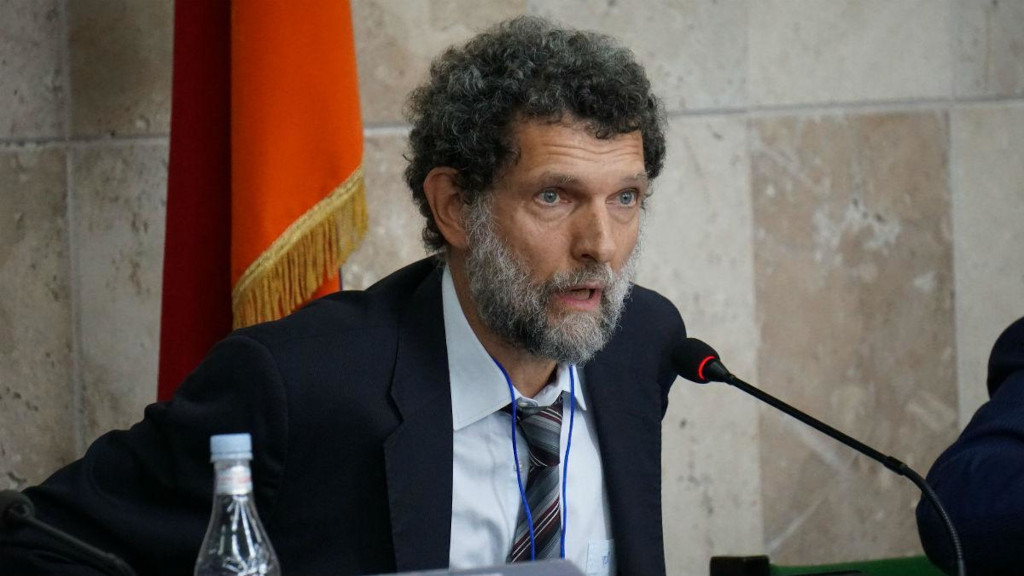A Turkish court on Monday extended the detention of a civil society leader, ignoring a deadline from Europe’s top human rights body to release him, in a case that has hurt Ankara’s ties with the West, Agence France-Presse reported.
Osman Kavala, a 64-year-old businessman and philanthropist, has been held without a conviction since October 2017 for allegedly financing a wave of 2013 anti-government protests and playing a role in an attempted coup against President Recep Tayyip Erdoğan in 2016.
But an İstanbul court on Monday turned down a motion from Kavala’s defense for his release, scheduling a new hearing for Feb. 21.
The case is souring Turkey’s ties with its traditional Western allies.
An appeal from 10 Western countries in October — including the United States and major European powers — for Turkey to release Kavala triggered a diplomatic standoff that nearly saw Ankara expel their ambassadors.
The Council of Europe’s human rights body then gave Turkey until Wednesday to either free Kavala or “submit in concise form” its justification for keeping him detained.
In the latest stage of the marathon trial in İstanbul on Monday, an AFP reporter in court saw diplomats representing the European Union and nine Western countries in attendance.
Ankara’s failure to provide a legal justification by the Wednesday deadline could see the council send the case back for further action to the European Court of Human Rights (ECtHR) at its next hearing on Feb. 2.
“Look, we all face a big test here,” defense lawyer Köksal Bayraktar told the presiding judge after reading out the original 2019 ECHR ruling ordering Kavala’s release.
“Put an end to this lawlessness and let our client free,” he pleaded.
Human rights setback
The ECtHR had ruled that Kavala’s detention was meant “to silence him as a human rights defender” and ordered his immediate release.
That call has since been repeated numerous times by both the Council of Europe as well as Western governments.
The council’s infringement procedures against Turkey could last months and possibly years.
But they could ultimately see Turkey lose its voting rights or even get kicked out of the pan-European rights body it first joined in 1950.
Turkey’s foreign ministry said it views the council’s actions — only launched once before against any of its 47 member states — as “interference” in an ongoing court case.
But government critics say Turkey’s standoff with the body underscores the profound erosion of human rights under Erdoğan’s two-decade rule.
Human Rights Watch last week warned that Erdoğan “has set back Turkey’s human rights record by decades” by undermining judicial independence and targeting his critics.
It also pointed to Turkey’s withdrawal last year from a convention protecting women against domestic violence and Erdoğan’s “rollback” of LGBTQ rights.



